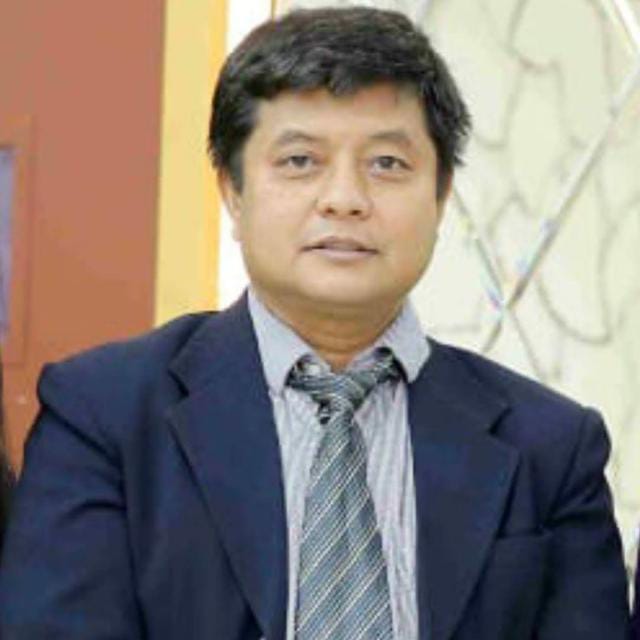Articles
Undoing the Culture of Silence
Opinion | Articles | James Pochury | 14-Dec-2024

"In the end, we will remember not the words of our enemies but the silence of our friends." (Martin Luther King Jr.)
When the youth of ICYM Northeast recently walked the hallowed grounds of Old Goa, touching the sacred relics of St. Francis Xavier and absorbing wisdom from our very own leaders like John Shilshi, they embodied something we at NECARF have forgotten – the courage to step forward, to engage, to be present. Their pilgrimage wasn't just a journey through sacred spaces; it was a clarion call to active faith, something our forum of distinguished researchers has yet to fully embrace.
The Echo of Silence in Digital Spaces
Our WhatsApp group has become a metaphor for a larger paradox: a gathering of brilliant minds trapped in digital silence. This platform, created to amplify the voices of rural parishioners across Northeast India's diverse landscape – from the tea gardens of Assam to the hills of Meghalaya, from the valleys of Manipur to the plains of Tripura – now mirrors the very voicelessness it sought to address. Think about a priest in a remote parish of Arunachal Pradesh, witnessing tribal traditions blend with Catholic faith, holding insights that could reshape our understanding of inculturation. Or consider a Khasi Professor in Shillong, whose research on indigenous knowledge systems could illuminate paths to a new way of being Church. These stories remain untold, these insights unshared.
The irony cuts deep. In an age where social media amplifies even whispers, our collective silence speaks volumes. As minority rights face unprecedented challenges—with church vandalization in Manipur, growing anti-conversion rhetoric, and subtle discrimination in educational institutions – we choose to remain observers rather than interpreters of our times. Are we not repeating history's tragic pattern? When German Protestant pastor Martin Niemöller penned his famous words about speaking up, he wasn't just documenting Holocaust history; he was warning future generations about the price of silence. Today, as Northeast Christians face mounting pressures, our intellectual response cannot be measured in emoji reactions or polite acknowledgments.
The Peace-Justice Paradox
Some argue that justice must precede peace, but our inaction betrays a fundamental misunderstanding. The synodal path illuminated by Pope Francis shows us that peace – internal, communal, and intellectual – creates the foundation for justice. While we wait for perfect conditions to speak up, our communities lose precious opportunities for dialogue and understanding.
Consider this: The Northeast harbors India's highest concentration of tribal Christians, yet where are our scholarly interpretations of tribal Catholic theology? While Protestant scholars actively shape public discourse, our rich Catholic intellectual tradition remains largely unexpressed in the Northeast context.
NECARF's potential extends far beyond academic discourse. We could be:
- Developing position papers on tribal Christian rights and identity
- -Creating platforms for rural Catholic narratives through organized documentation
- Establishing mentorship programs pairing experienced researchers with emerging voices
- Building bridges between Catholic intellectual tradition and indigenous knowledge systems
- Leading interfaith dialogues that address regional conflicts
Instead, we've allowed our forum to become what we feared—"just"another WhatsApp group."
The ongoing Synod on Synodality isn't just a Church event; it's an invitation to reimagine Catholic intellectual engagement. Our region's unique characteristics – tribal heritage, colonial history, ongoing militarization, and interfaith dynamics – position us to contribute distinctively to global Catholic thought. The question isn't whether we have enough Catholic researchers; we've proven that we do. The real question is: Do we have the courage to transform our intellectual capital into cultural and spiritual currency?
Today's Northeast needs more than academic papers; it needs interpreted experiences, contextualized theology, and articulated wisdom. Each NECARF member carries not just degrees and designations, but a responsibility to:
- Share one substantial insight monthly
- Mentor one rural voice yearly
- Contribute to one position paper quarterly
- Engage in regular intellectual discourse on regional issues
As a humble member and unending Convenor-ship, I'm not just calling for participation; I'm inviting co-creation. Let's transform NECARF from a forum into a movement. The youth in Goa showed us that journeys of faith require steps of courage. Our intellectual journey demands no less.
The corridors of influence need more than our presence; they need our perspective. The Northeast Catholic narrative isn't just waiting to be told; it's waiting to be shaped, challenged, and enriched by every voice in this forum.
Our silence serves no one. Our voice, however, could serve everyone. The time for academic hesitation has passed. The time for intellectual courage has come.
__________________
(The author is the Convenor of the North East Catholic Research Forum. He could be reached at jamespoch@gmail.com.)
Leave a comment
